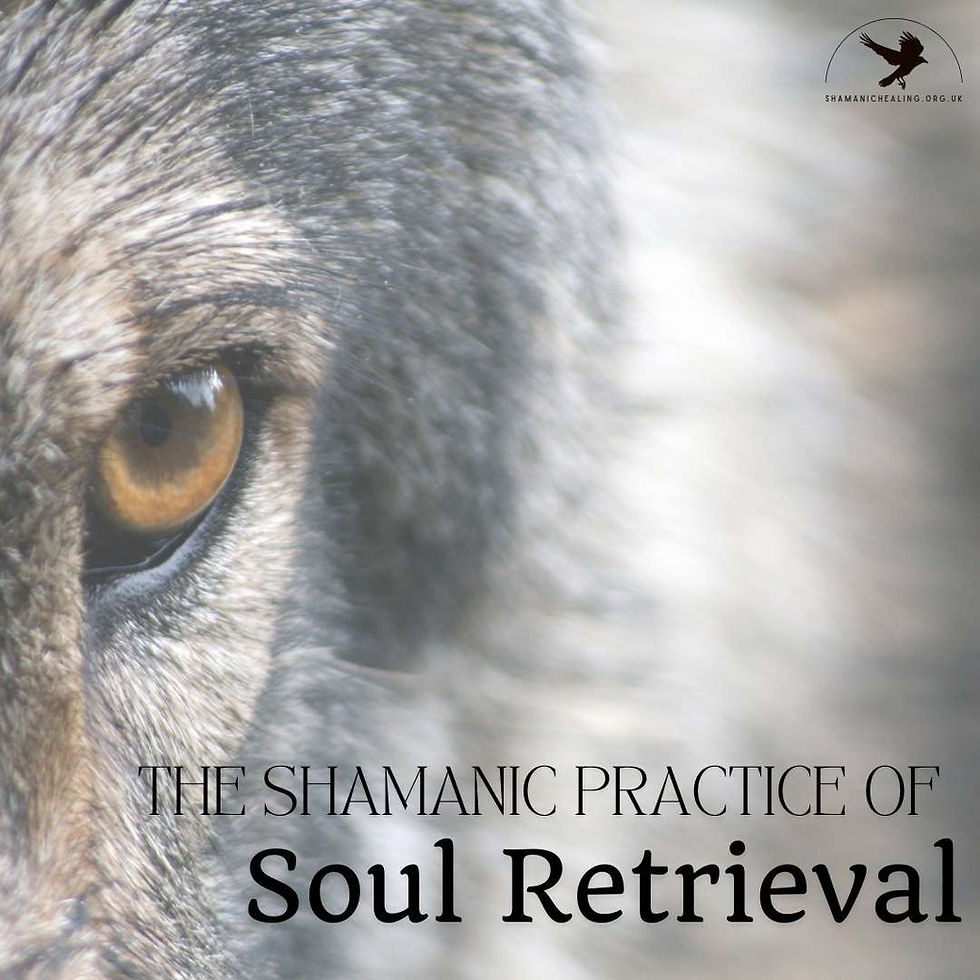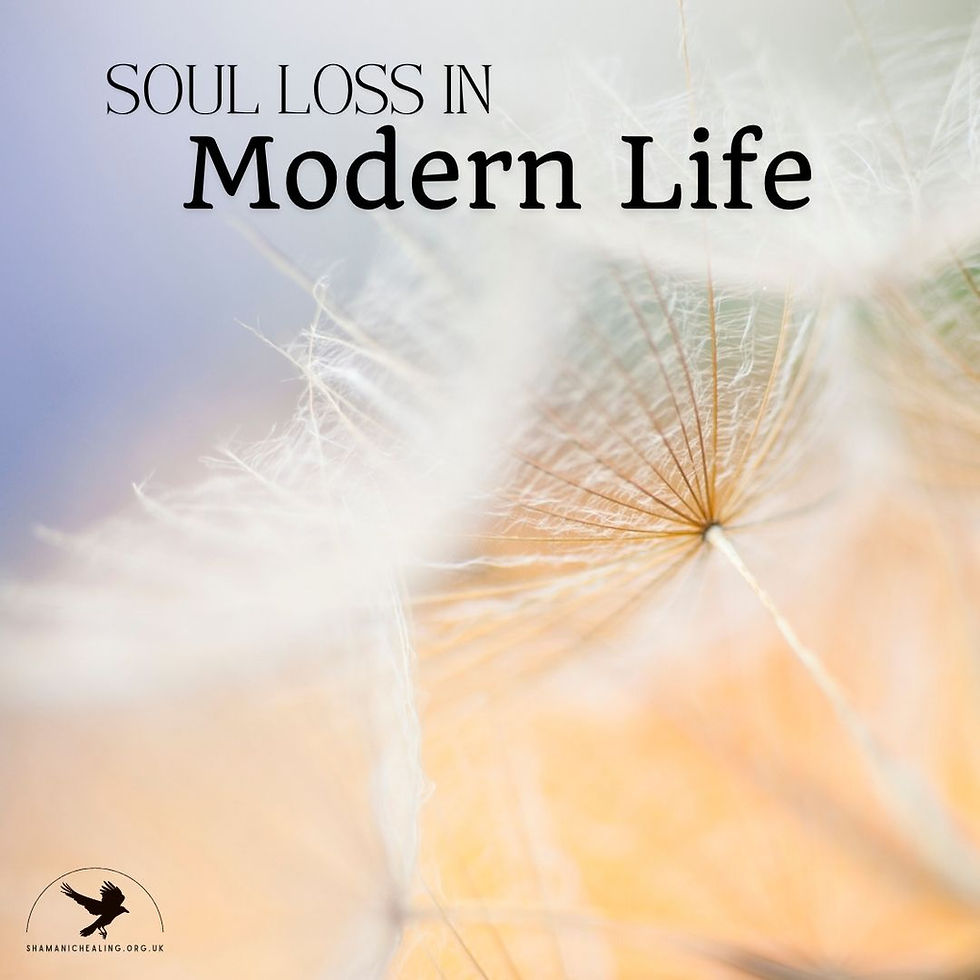What is Neo-Shamanism?
- Ioan Fazey
- Feb 9, 2024
- 4 min read
Updated: Feb 5, 2025
Interest in learning about Shamanism in the West is growing as more and more people look for a way to make sense of the deep ecological crisis facing people and our planet, and for a different way to approach their spiritual development. This has led to the emergence of contemporary or ‘Neo-Shamanism’. But what is it?
The term Neo-Shamanism is usually applied to the contemporary spiritual practice of Shamanism by Westerners, with its practices often having some connection to the traditional cultures in which they originated, but which have been adapted to Western contexts. Such contemporary Shamanism is now extremely diverse, with Shamanic practices being integrated into many different modalities, and into a more urban and global society. While Neo-Shamanic practitioners tend not to be embedded in geographic, linguistic, and culturally based traditions, and tend to focus more on the development and healing of individuals, contemporary Shamanism is still often based on similar cosmologies to Shamanism practiced in traditional cultures.

Since the 1960s, and as many people have sought new ways of living and ways to empower themselves, there has been a revival of Shamanism in the West with the interest in Neo-Shamanic practice growing. Results of the 2022 UK government census, for example, found that those subscribing to a Shamanic belief system grew tenfold from only 650 people in 2011 to 8,000 in 2022. This represented the most rapid rise in any spiritual belief in the UK.
The emergence of Neo-Shamanism has been aided by those in the 1970s and 1980s who learned from traditional cultures across the world and brought them to the west. It includes ethnologists like Michael Harner who, based primarily on his experiences of Shamans in South America from others from across the world, identified elements of Shamanism common across different `Shamanic cultures. This led to the idea of ‘core Shamanism’. While many are still critical of the idea of Shamanic practice separate from a place or cultural context, core Shamanism greatly helped make made shamanism more accessible to those living in contemporary and western societies. Over time, influential second and even third generation Western teachers of Shamanic practice have emerged. Such influencers have further spread Shamanic practice through their books, and trainings, and by harnessing opportunities provided by enhanced technological interconnectivity.
Neo-Shamanism as a spiritual practice
The growth of Neo-Shamanism has many critics who highlight that practicing Shamanism outside of a Shamanic culture and context on which it originally developed can be misleading. Those from traditional Shamanic cultures also often strongly object to Western Neo-Shamanic practice, viewing it as a form of cultural exploitation, used for financial gain, and in the absence of the depth of training and cultural immersion needed to lead people through difficult, transformative and immersive experiences.
It is, however, not surprising that interest in Shamanism in the West is growing, given the rapidly emerging ecological crisis, desire to find new ways of connecting with nature and the world beyond our ‘self’, growing mental health crisis, and desire by many to find something different to help them awaken spiritually. Shamanic practice has always evolved, and its adaptability may well be why it has survived in various forms for so long in human history.
The vast majority of practitioners of Neo-Shamanism are also deeply committed to their spiritual development and are highly aware and careful of how they approach it. It is perhaps not then a question about whether one should or should not practice Shamanism out of a fear of cultural appropriation, but rather how such practice can be approached in a more culturally sensitive way and how one can be reflexive and practice the spiritual path with awareness. For example, I am wary of anyone in the West who may call themselves a Shaman given that they are unlikely to have gone through the cultural initiation, selection, and nurturing necessary, for them to take the role of a Shaman as occurs within Shamanic cultures. Instead, the term ‘Shamanic Practitioner’ is much more appropriate as it emphasizes a process of development and that this is not equivalent to someone embedded in a Shamanic culture and all that this brings.
Overall, in my own experience, Shamanic practice has brought me great joy, helped me develop my capacity for compassion, enabled me to help others, given me courage to travel roads less often travelled, and provided me with hope, conviction and direction in what is a challenged, confused and spiritually bereft world. If Neo-Shamanism is approached as a sacred process of spiritual development and as a process of learning to help others, and if it is approached with care, openness, curiosity, humility, then it will continue to have an important role in furthering the development of human consciousness on our planet.
Further Reading:
Carr-Gomm, P. 2002. Druid mysteries: Ancient wisdom for the 21st century. Rider.
Francis, P. 2016. The Shamanic journey: A practical guide to therapeutic Shamanism. Volume 1. Paul Francis.
Harner, M. 1992. The way of the Shaman. 3rd edition. HarperSanFrancisco, San Francisco.
Mackinnon, C. 2016. Shamanism made easy: Awaken and develop the Shamanic force within. Hay House Ltd. , London.



Comments